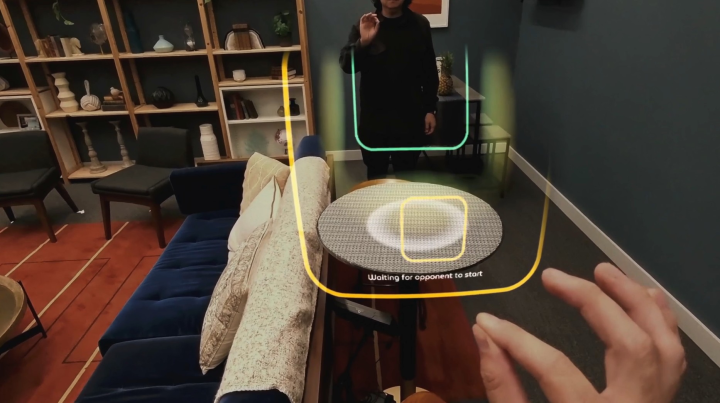Meta’s New Holographic AR Glasses: A Glimpse into the Future of Wearables
During the Meta Connect keynote, Meta not only shared significant updates for its Ray-Ban Meta Smart Glasses, but it also teased a groundbreaking prototype of fully holographic AR glasses. After nearly a decade of development, CEO Mark Zuckerberg introduced “Orion” — their first working model.
Dubbed as “the most advanced glasses the world has ever seen,” the Orion prototype is impressively close to resembling regular eyewear — a feat that even top-tier smart glasses haven’t yet achieved. For fans of chunky frames, they aren’t oversized, but Meta plans to refine the design further, aiming for something sleeker and more stylish before release.
The Orion team focused on creating glasses that look and feel like regular eyewear. This means no bulky headsets or cables, weighing under 100 grams, offering a wide field of view, and sharp holographic displays that work in various lighting conditions. Importantly, the glasses also maintain transparency, allowing users to see through the lenses while others can still see their eyes.
The technology behind Orion projects holograms directly into the real world, without passthrough screens. These holograms could range from a cinematic screen or desktop window to virtual games or holographic people during calls. The display is crafted from silicon carbide and powered by projectors in the glasses’ arms, which direct light into the lenses to create vivid, multi-depth holograms. The magnesium frames keep the glasses light and efficiently dissipate heat.
Zuckerberg mentioned that the glasses are powered by a battery in the arms, with an additional “small puck” providing extra power. Interaction will rely on AI, using voice, hand, and eye tracking, alongside an intriguing wrist-based neural interface that could respond to brain signals.
While some features remain a mystery, Meta’s team is still refining aspects like display sharpness, design, and cost-efficiency. For now, the prototype will serve as a development tool for building software experiences, with a consumer release expected in the coming years.
Learn more: Meta Reality Lab
Read also: Exploring the Top Virtual Reality Devices With Date


Pingback: Meta's Vision for Smart Glasses: The Future of Wearable Computing - TS TECH TALK